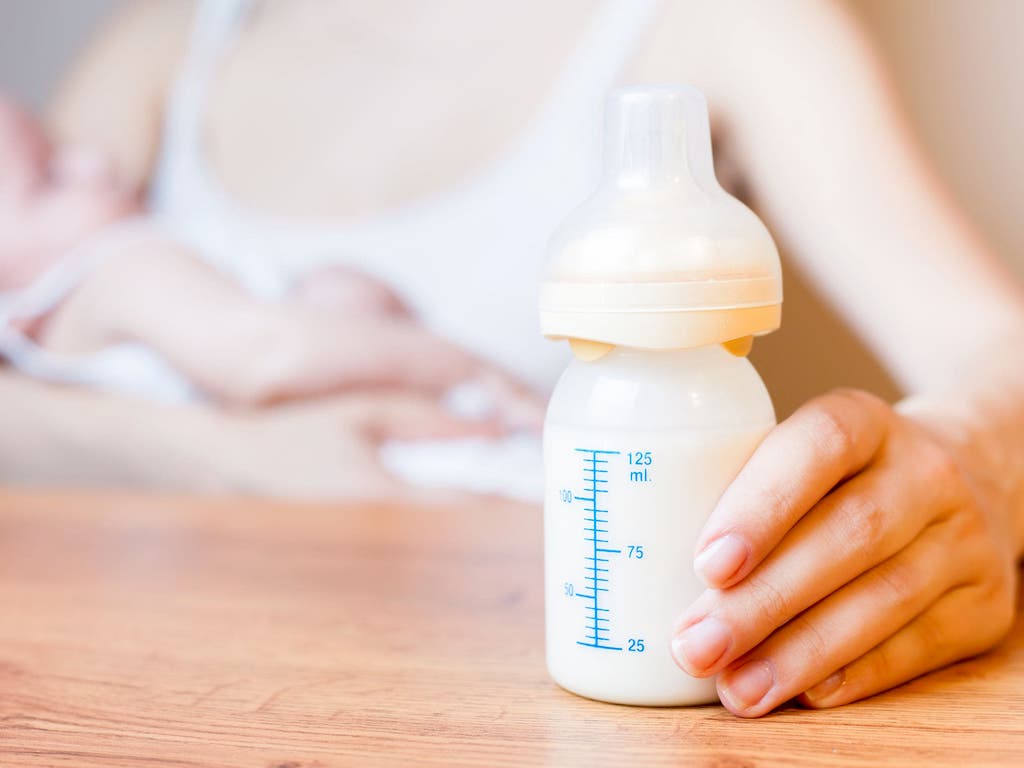3 Mins Read
Bottle-fed babies could be consuming millions of microplastic particles per day, according to new research unveiling the level of human exposure to plastic. The high-temperature process for sterilising plastic bottles and preparing milk formula worryingly causes far greater amounts of microplastics to be released, as well as trillions of even smaller sized particles known as nanoplastics.
The study, published in the journal Nature Food, represents a milestone in furthering our understanding of human consumption of plastics. While there has been growing evidence suggesting that micro and nonplastics are released into food due to pollution, research focused on the direct release of microplastics from the everyday plastic products we use, such as infant-feeding bottles, remains scarce.
Alarmingly, the scientists found that preparing the formula in plastic containers like polypropylene bottles – which make up 83% of the world market – can lead to high levels of microplastic exposure. The use of heat, which is recommended as a sterilisation procedure, further increases the release of microplastics, which can then be ingested by babies.
Our study indicates that daily use of plastic products is an important source of microplastic release, meaning that the routes of exposure are much closer to us than previously thought.
Professor Liwen Xiao, Co-Author, Trinity College Dublin
Read: Humans are consuming 50,000 microplastic particles a year, study finds
“Previous research has predominantly focused on human exposure to micro and nanoplastics via transfer from ocean and soils into the food chain driven by the degradation of plastics in the environment,” explained professor Liwen Xiao of Trinity College Dublin in Ireland and co-author of the paper.
“Our study indicates that daily use of plastic products is an important source of microplastic release, meaning that the routes of exposure are much closer to us than previously thought.”
Estimating the exposure of 12-month-old infants to microplastics across 48 regions in the world, the scientists say the exposure level for babies is “in excess of one million microplastics”. The team calculated the figure using microplastic release rates from infant plastic feeding bottles, the market share of such products, the infant daily milk intake volume and breastfeeding rates.
Bottle-fed babies in Oceania, North America and Europe were found to have the highest levels of potential exposure of all regions globally, ingesting an estimated 2.1 million, 2.28 million and 2.61 million microplastic particles every single day, respectively.
Other preliminary tests conducted by the researchers showed that other polypropylene plastic-ware products that are used by adults, such as kettles and food containers, also release millions of microplastics per litre of liquid.
We are calling on policy makers to reassess the current guidelines for formula preparation when using plastic infant feeding bottles. Crucially, we have found that it is possible to mitigate the risk of ingesting microplastics by changing practices around sterilisation and formula preparation.
Professor John Boland, Co-Author, Trinity’s School of Chemistry
Read: Scientists can now detect microplastics in human organs & tissues
In response to these findings, the cross-departmental science team from Trinity College Dublin developed a set of recommendations for safer infant formula preparation when using plastic bottles in order to minimise the risk of microplastic release.
They advise parents and guardians to prepare the sterilised water in a non-plastic kettle, sterilise bottles according to World Health Organisation guidelines, and allow it to cool afterwards. Once cooled, the bottles should be rinsed at least three times using room temperature sterilised water, before the room temperature infant formula is poured in after being prepared in a non-plastic container.
“We are calling on policy makers to reassess the current guidelines for formula preparation when using plastic infant feeding bottles. Crucially, we have found that it is possible to mitigate the risk of ingesting microplastics by changing practices around sterilisation and formula preparation,” said co-author of the study professor John Boland of Trinity’s School of Chemistry.
However, given that polypropylene products are so widespread, the researchers say there is a “urgent need for technological solutions” to plastic containers.
“We have to accept that plastics are pervasive in modern life, and that they release micro and nano plastics through everyday use,” said lead authors Dr Dunzhu Li and Dr Yunhong Shi. “We don’t yet know the risks to human health of these tiny plastic particles, but we can develop behavioural and technological solutions and strategies to mitigate against their exposure.”
Lead image courtesy of Getty Images / iStock.




